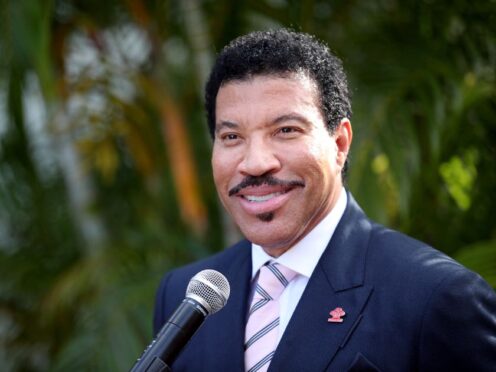Lionel Richie has revealed how people “questioned” his blackness as he pursued success as a young artist.
The US singer-songwriter, 72, rose to fame in the 1970s as part of the Commodores funk and soul band, writing and recording hit singles including Easy and Three Times A Lady.
He launched a solo career in 1982 with his self-titled debut before releasing a string of hit albums including Can’t Slow Down and Dancing On The Ceiling.
Speaking to People magazine for Black History Month in the US, Richie, originally from Tuskegee in Alabama, said of his early years: “It was really a great period in my life, but it was confusing.
“No one had ever questioned my blackness before. Like, do you know who you’re talking to?”
Referring to his upbringing around the campus of Tuskegee University, a historic black college, he added: “William L Dawson, who wrote the Negro Folk Symphony, would stop by the house.
“Alfred ‘Chief’ Anderson was one of the dads in the community. He’s the one who took Eleanor Roosevelt up in a plane to prove that black folks could fly.
“I grew up around amazing people. They wanted us to be better. There was that saying, ‘Failure is not an option’.”
Richie said he dismissed his early critics and focused on his aspiration to become a successful musician.
He told the publication: “I said, ‘I’m not trying to be the greatest black writer of all time. I’m trying to be the greatest writer of all time that happens to be black’.
“At the time it wasn’t hip, but it was forever. I had to keep moving forward in my quest to be that.
“It worked. I passed my goal a long time ago when someone said to me, ‘You have 40 years of records that will survive you’.”
Richie has won four Grammys and an Oscar for original song for Say You, Say Me from the film White Nights, and was a Kennedy Centre honoree in 2017.
